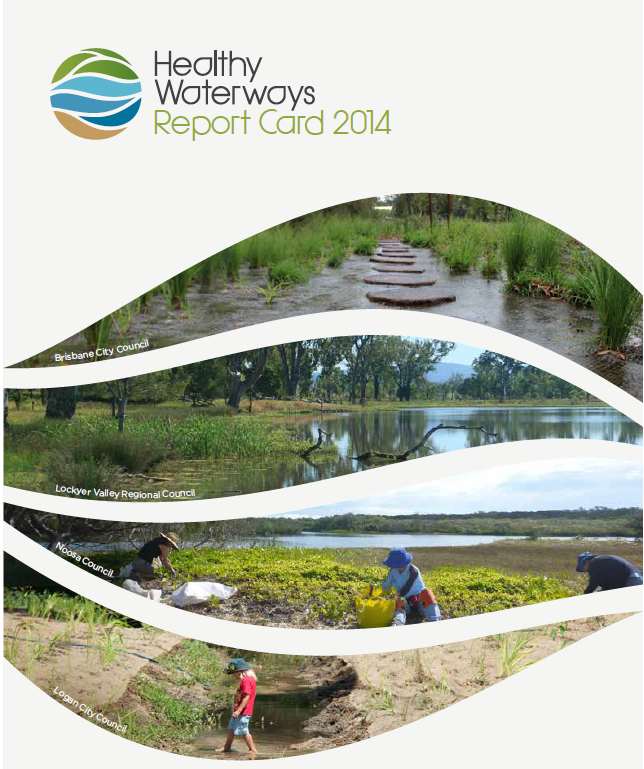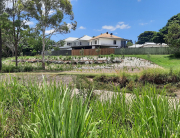Since 2000, Healthy Waterways has produced an annual Report Card which helps us understand and communicate the health of South East Queensland’s waterways, and identify issues that require intervention. Ecosystem health is assessed against relevant benchmarks, resulting in a single grade (‘A’ to ‘F’) for each freshwater, estuarine and marine system. Rigorous science is applied to measure waterway health using a broad range of biological, physical and chemical indicators of ecosystem health. A total of 135 freshwater sites are monitored biannually, and 254 estuarine and marine sites are monitored monthly across South East Queensland and Moreton Bay.
Yesterday, Healthy Waterways launched the 2014 Ecosystem Health Report Card, which is available from Healthy Waterways.
Overall, the report card showed a decline in freshwater grades and improvements in estuarine and marine grades across South East Queensland.
The improvements in estuarine and marine grades are in part due to the significant investment that has occurred over the past 14 years. Point source pollution has been reduced through wastewater treatment plant upgrades, even with a growing population. Since 2000, significant investment has been made to reduce point source pollution, with water utilities, state and local governments spending over $1 billion upgrading wastewater treatment plants. This investment has proven highly effective in achieving long term water quality improvements in South East Queensland’s estuaries through lowering the nutrient loads and reducing the incidence of algal blooms.
Stormwater Queensland’s Brad Dalrymple said “I congratulate Healthy Waterways on the work they continue to do on this great initiative. Whilst the overall improvement in estuarine and marine grades is great to see, it is worth noting that, during the latest 12-month monitoring period, many of the catchments received the lowest rainfall since the monitoring program began. This would have significantly reduced the catchment-based loads discharged to our waterways, and subsequently our estuarine and marine environments. The major issue affecting waterway health in South East Queensland continues to be the increasing amount of pollutants entering our waterways from catchment-based sources.”
“The ecosystem health monitoring has shown that the investments associated with upgrading wastewater treatment plants has benefitted the health of our waterways. Significantly more investment and action is now required to appropriately manage runoff from expanding urban areas, plant native vegetation along degraded waterways and protect existing riverbank vegetation. This is vital to protect and improve waterway health, and the associated ecological, social and economic values our waterways”.











Leave A Comment
You must be logged in to post a comment.